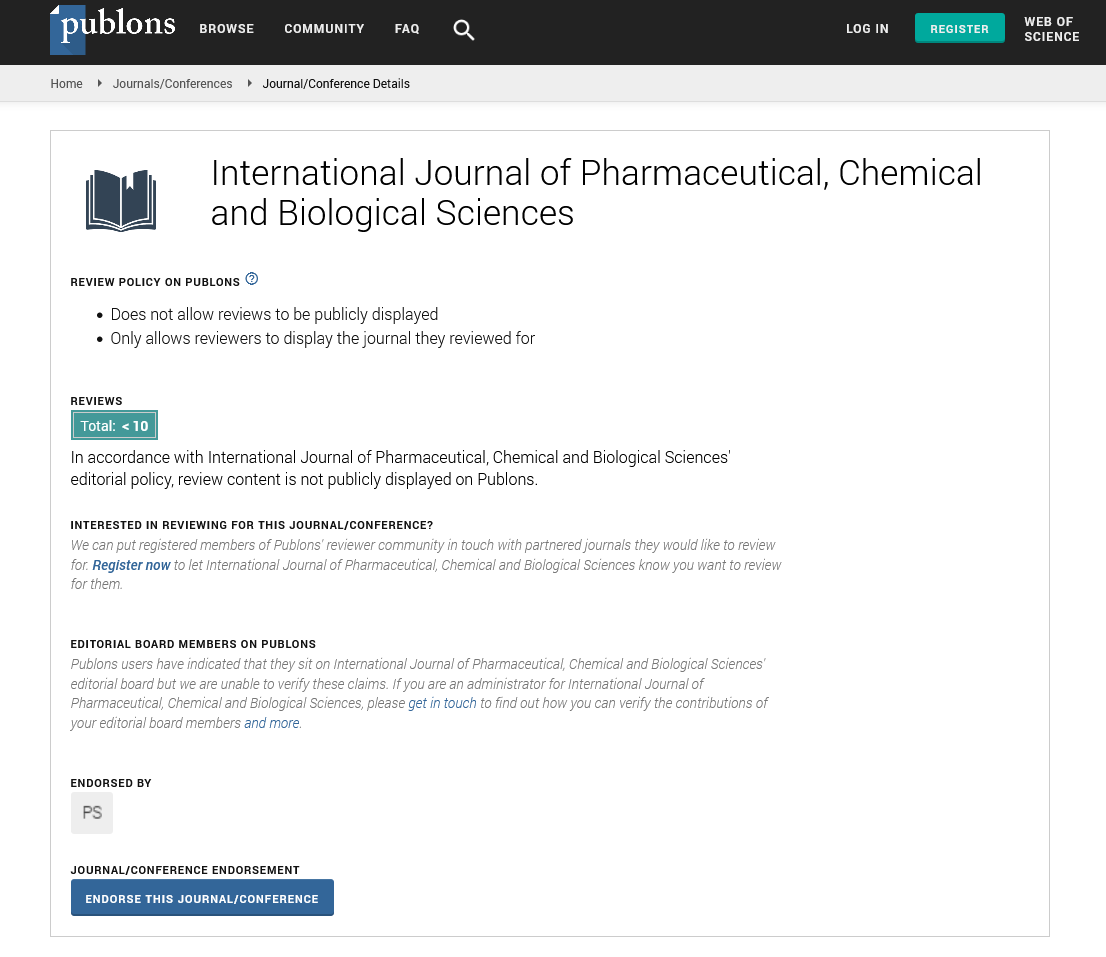Commentary Article - International Journal of Pharmaceutical, Chemical and Biological Sciences ( 2022) Volume 12, Issue 4
Pharmacogenomics: An Exciting and Powerful Emerging Field
John Markowitz*John Markowitz, Department of Pharmacotherapy, University of Florida, United States,
Received: 01-Aug-2022, Manuscript No. IJPCBS-22-74490; Editor assigned: 03-Aug-2022, Pre QC No. IJPCBS-22-74490 (PQ); Reviewed: 17-Aug-2022, QC No. I IJPCBS-22-74490; Revised: 22-Aug-2022, Manuscript No. IJPCBS-22-74490 (R); Published: 29-Aug-2022
Description
The term pharmacogenomics is often used interchangeably with pharmacogenetics. Although both terms relate to drug response based on genetic influences. Pharmacogenetics encompasses a more genome-wide association approach, incorporating genomics and epigenetics while dealing with the effects of multiple genes or even chromosomes on drug response. Pharmacogenomics is an exciting and powerful emerging field that promises to improve health care outcomes like never before. PGx provides meaningful data that can help prevent adverse drug reactions, deliver beneficial treatments faster, and lower medical costs. Pharmacogenomics can play an important role in identifying responders and non-responders to medications, avoiding adverse events, and optimizing drug dose. Pharmacogenomics studies how medicine interacts with inherited genes. This includes how inherited genes affect the way medications work for each person. Genetic differences mean that a drug can be safe for one person but harmful for another. One person may experience severe side effects from it. Another may not, even when given a similar dose. Pharmacogenomics is a type of genetic testing. It looks for small variations within genes. These variations may affect whether genes activate or deactivate specific drugs. Test results help the doctor choose the safest and most effective drug and dose. Pharmacogenomics is constantly changing. Researchers continue to identify gene variations that affect how a drug works. As personalized medicine grows, testing for gene variations may become more common. It deals with the influence of acquired and inherited genetic variation on drug response in patients by correlating gene expression or single-nucleotide polymorphisms with pharmacokinetics and pharmacodynamics. Many drugs that are currently available are “one size fits all,” but they don’t work the same way for everyone. It can be difficult to predict who will benefit from a medication, who will not respond at all, and who will experience negative side effects. Adverse drug reactions are a significant cause of hospitalizations and deaths in the United States. Pharmacogenomics may also breathe new life into some drugs that were abandoned during the development process. In spite of the fact that pharmacogenomics has extraordinary commitment and has taken significant steps lately, it’s still in its beginning phases. Clinical preliminaries are required not exclusively to distinguish joins among qualities and treatment results yet in addition to affirm starting discoveries, explain the importance of these affiliations and make an interpretation of them into recommending rules. Regardless, progress in this field highlights when pharmacogenomics will be essential for routine clinical consideration basically for certain medications. Human Genome Project is one of the vital tasks in which specialists are creating and learning connection in qualities and its impact on the body’s reaction to drugs. Contrast in hereditary cosmetics gives distinction in viability of medicine and in future to anticipate adequacy of prescription for an individual and to concentrate on presence of unfriendly medication responses. Other than progression in the area of science and innovation till date pharmacogenomics hangs in earliest stages. There is restricted utilization of pharmacogenomics, yet, novel methodologies are under clinical preliminaries. In not so distant future, pharmacogenomics will empower improvement of tailor-made therapeutics for dealing with broad medical issues like neurodegenerative, cardiovascular problems, HIV, disease, asthma, and so on.
Acknowledgement
None.
Conflict of Interest
None.

